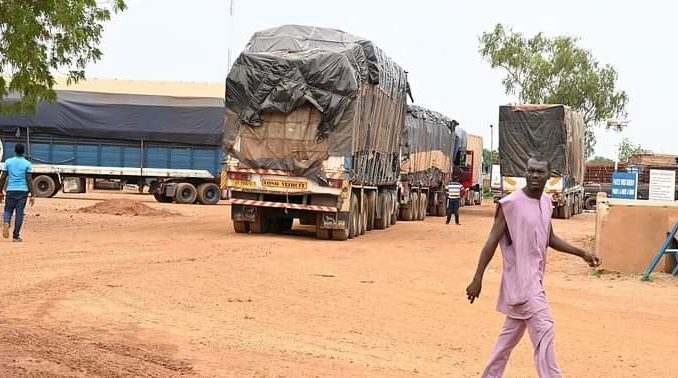
Around 300 trucks of food and other materials crossed into Niger from Burkina Faso with many arriving in the capital, Niamey Sunday, according to a regional customs official.
The convoy of trucks departed from Burkina Faso, the last open border with Niger since the West African regional bloc imposed sanctions after mutinous soldiers overthrew the country’s president last month.
But the route between Burkina Faso and Niger is lined with jihadi groups, making it dangerous to drive and requiring military escorts from both armies.
Niger’s coup was seen by the international community and ECOWAS as one too many and in addition to threatening a military invasion, the bloc has imposed severe economic and travel sanctions.
In the first six months of 2023, attacks on civilians were 49% lower than in the first six months of 2022, and the number of deaths was 16% lower, according to the NGO Acled, which records the victims of conflicts around the world.
Western observers and partners, notably France, a privileged ally of the ousted regime which still has 1,500 troops in Niger, have highlighted these encouraging results.
This improvement is partly attributed to the strategy implemented by Mr. Bazoum, the only one of its kind in the Sahel, to combat jihadist groups.
While the military regimes in neighboring Mali and Burkina Faso are carrying out “anti-terrorist” operations that are accused of taking a heavy toll on civilian populations, Niger has opted for a policy of “extending a helping hand”.